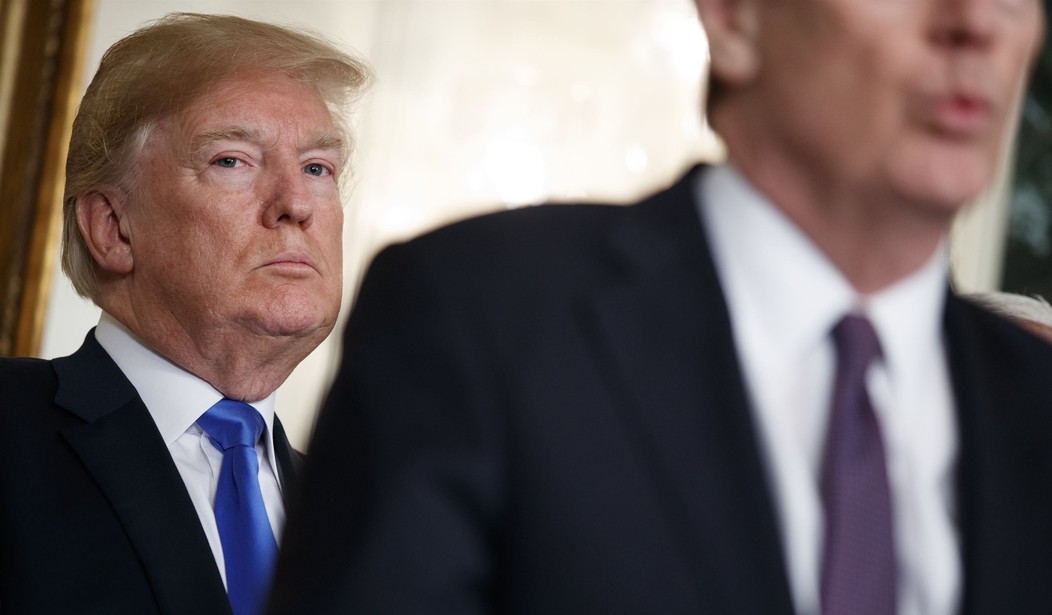The debate over free trade and how to open up markets seems to never end. I am a conservative who favors free trade, yet the agreements that our nation has entered into seem to always put America last and they have resulted in the loss of jobs and manufacturing in America. The recent controversy over Trump’s aluminum and steel tariffs are a great example of using tariffs as leverage to broker better trade agreements.
As a conservative, I tend to be categorially against all tariffs. I understand and have sympathy for the argument that a tariff is nothing more than a tax and taxes are bad. Yet I also struggle with the problem that our past presidents have negotiated terrible deals that have allowed the continued subsidizing and flat out cheating by nations like China.
China is notorious for stealing intellectual property from American companies. What other tool can a country use to punish a cheating nation? There are no perfect solutions, but tariffs being used in limited circumstances to forward the long-term goal of true free trade agreements seems like a logical option for President Trump to protect American jobs and the national security needs of having a vital and sustainable steel and aluminum industry.
President Donald Trump issued some bold tariffs earlier this month. The New York Times reported on March 1, 2018 that “President Trump said on Thursday that he would impose stiff tariffs on imports of steel and aluminum, making good on a key campaign promise and rattling stock markets as the prospect of a global trade fight appeared imminent.” The initial announcement was for 25% tariffs on imported steel and 10% tariffs on imported aluminum. These tariffs were to ensure continued domestic production of steel and aluminum that promotes a sustainable industry and protects national security, and the workers who rely on these jobs.
Recommended
Then the Trump administration decided to exempt a large number of countries from the tariffs. CNN Money reported on March 22, 2018, that “The European Union, Argentina, Brazil, South Korea and Australia will not be subject to the trade penalties when they take effect Friday, US Trade Representative Robert Lighthizer told a Senate committee Thursday.” Canada and Mexico had already been exempted. According to a piece in CNBC, “it was unclear what impact such a comparatively minor measure of protection for domestic production could in turn have on American firms that Trump had long championed.” These exemptions, although temporary, create some market uncertainty, and it would make sense for President Trump to allow the exemptions to expire so as not to exempt bad actor’s nations from new tariffs and hold all nations accountable for overcapacity and illegally subsidizing steel and aluminum production.
In other words, tariffs may be necessary to leverage true free trade agreements. Countries that cheat need to be punished with tariffs and exemptions undermine the whole goal of leveraging true free trade between nations. One way to protect American competitiveness and jobs is to remove the exemptions that will allow the flow of cheap steel and aluminum to flood our markets from Mexico, Canada and EU member nations.
The problem is a big one. Global steel and aluminum overcapacity is killing domestic production of those products. Just look at China’s excess production of steel as an example of how other nations flood the markets. According to Forbes, “China is the world’s largest producer of steel” and “Chinese steel production continues to remain at elevated levels, despite subdued steel prices and weak domestic demand amid slowing economic growth in the country.” China exceeds domestic demand by about 140 million metric tons (in 2016) and they do so because “state support in forms such as subsidies and tax breaks has allowed Chinese steel producers to continue producing at elevated levels despite an unfavorable business environment.” It is estimated that these elevated levels of production will remain in place right through 2035.
The problem is that China isn’t even the most consistent violator of international trade laws. According to James A. Lyons, Jr. writing at The Hill on February 1, 2018, “over the last four years, more than 85 percent of U.S. steel trade cases have involved countries other than China.” Allowing exemptions to expire will hit nations other than China who are flooding our markets.
President Donald J. Trump’s America first trade policy is being undermined by existing exemptions on tariffs. The current exemptions are temporary and should be allowed to expire if our trade partners don’t lower barriers. The tariffs that President Trump has proposed have worked and any backing off will reduce the effectiveness of making American steel and aluminum producers great again.

























Join the conversation as a VIP Member